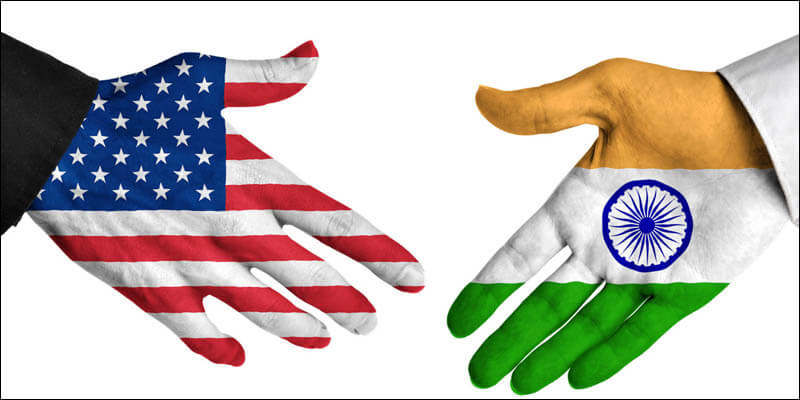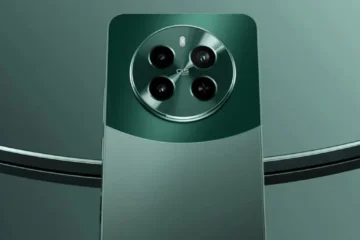The move comes at a time when the United States is trying to compete with China in key technologies and put pressure on China’s semiconductor industry.
On Tuesday, India and the United States launched a programme to strengthen their strategic partnership, with the National Security Advisor (NSA) Ajit Doval and his American counterpart Jake Sullivan meeting in Washington for the inaugural dialogue of the Initiative on Critical and Emerging Technologies (iCET).
The two parties announced a series of measures designed to expand bilateral collaboration in cutting-edge technologies, particularly the defence industry.
In their comments detailing the discussion, both governments stated that the iCET aims to construct supply chains that improve co-production and co-development between the countries and increase linkages between the countries’ startup ecosystems.
Following the meeting, the White House produced a “information sheet” highlighting six intended areas of collaboration: building innovation ecosystems, defence innovation and technology cooperation, robust semiconductor supply chains, space, STEM talent, and next-generation telecommunications.
The programmes include a Research Agency Partnership between the U.S. National Science Foundation and Indian science agencies; a mechanism to cooperate on quantum computing that will also involve academia and industry; developing a new roadmap for defence industrial cooperation; supporting the development of semiconductors in India, including by establishing a task force to identify opportunities; and expanding space cooperation, including human spaceflight.
A private-public conversation to further 5G/6G cooperation and the implementation of Open RAN (technology connecting phones to each other and the internet) in India was also announced.
The U.S. also committed to a swift evaluation of General Electric’s proposal to manufacture jet engines in India for India-made Light Combat Aircraft.
The project is a significant milestone in the bilateral relationship, having been declared at the highest level — by Prime Minister Narendra Modi and U.S. President Joe Biden at the Tokyo Quad summit in May 2022.
This level of support, along with the fact that the initiative is being led by the NSAs on both sides — with their ability to coordinate across ministries and departments — not only “distinguished” but was also essential to the initiative’s success, a senior U.S. official told reporters on a Tuesday briefing call.
The participation of the corporate and academic communities in India and the United States, as well as the initiative’s goal to renew and capitalise on existing processes, are considerations in iCET’s favour, according to a U.S. official.
The United States will strive to relax export prohibitions.
Also being discussed in Washington was the loosening of export limits and controls.
“I believe that both parties were pretty frank about the regulatory issues they offer to each other. On Tuesday, a senior administration official told reporters on a conference call that this frequently impedes the vision of deeper and broader technical cooperation. The official stated that the Biden administration would collaborate closely with the U.S. Congress, where there is bipartisan support for the bilateral engagement, to overcome these obstacles.
The Ministry of External Affairs (MEA) said in a statement, “The U.S. side also assured help to eliminate export barriers to India in a few crucial areas, including through work toward legislative improvements.”
The White House stated in a statement that the Biden administration would work with the U.S. Congress to reduce impediments to High Performance Computing and source code exports to India.
Not just about China: U.S.
The programme comes at a time when the United States is attempting to outcompete China in crucial technology and tighten its grip on China’s semiconductor industry. However, Biden administration officials were quick to stress that iCET is not only about China.
“These initiatives involve more than just China, as this is not merely a matter of defence. This is a multifaceted effort in a variety of locations, according to a senior Biden. The U.S. wants to participate in India’s progress, and this is the “next logical step” in the bilateral relationship, according to officials.
Cooperation will preserve human rights for all: U.S.
The White House statement included human rights, although the MEA statement did not. The United States has been concerned about the misapplication of technology, such as in China, where it has been utilised for intrusive surveillance.
“The United States and India affirm that the design, development, governance, and use of technology should be shaped by our shared democratic values and respect for universal human rights,” the White House said, adding that the two countries are committed to technology that “reinforces our democratic values and democratic institutions.”
At Tuesday’s meeting, Mr. Doval was joined by India’s ambassador to the United States, Taranjit Singh Sandhu, the Principal Scientific Advisor, the Secretary of the Department of Telecommunications, the Chairman of ISRO, the Scientific Advisor to the Defence Minister, the Director General of DRDO, and other senior officials, according to the MEA.
The next iCET meeting was scheduled to be held in New Delhi later this year.

Bimal Mardi is a Professional Content Writer. He works in First Santal Broadcast Network TV/ News channel in India. Bimal Mardi writes about Technology, Education and Tech Product Reviews




